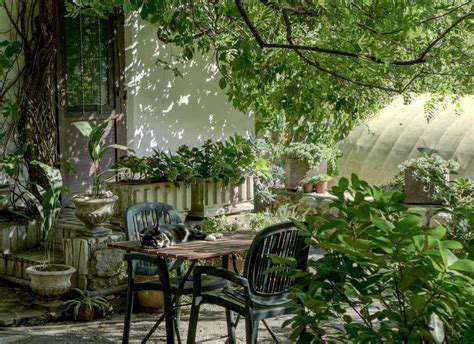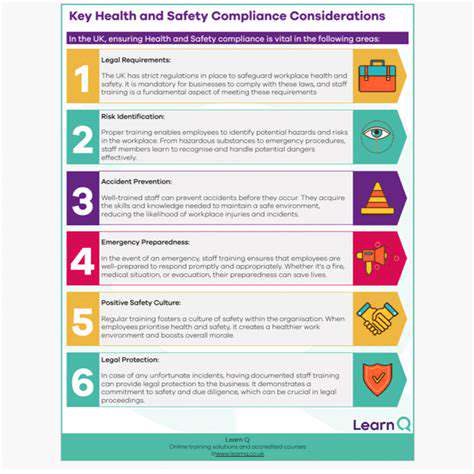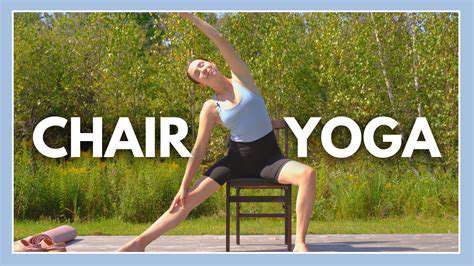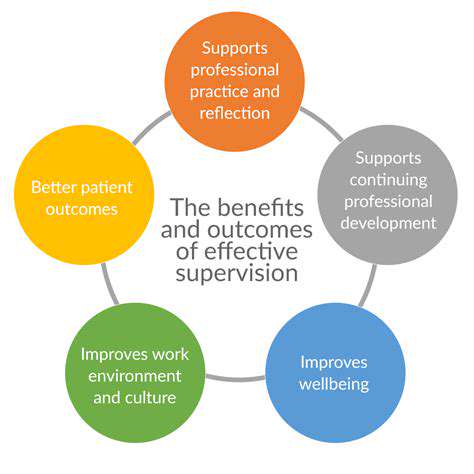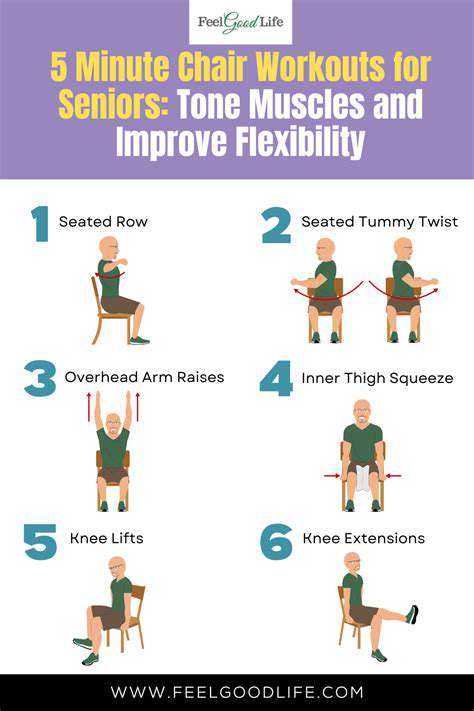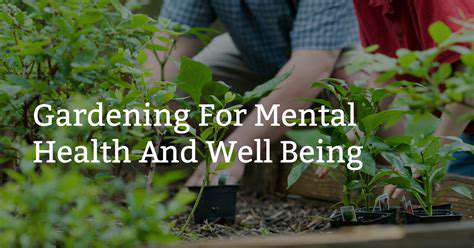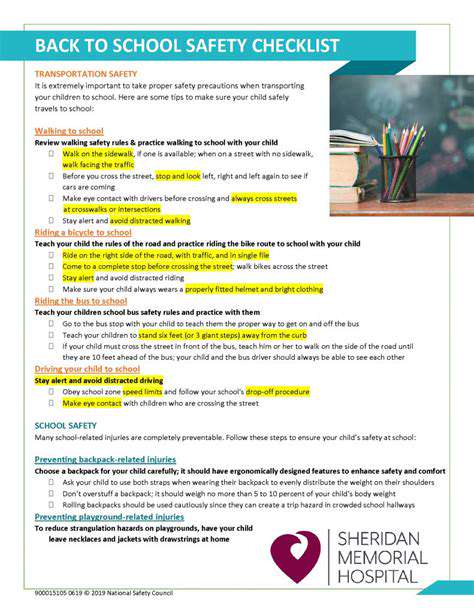Container Gardening: A Simple Way for Seniors to Enjoy Plants
Benefits of Container Gardening for Seniors
Enhanced Accessibility and Mobility
Container gardening offers significant advantages for seniors with mobility limitations. By placing plants in easily movable containers, seniors can tailor their gardening space to their current physical capabilities. They can position containers at comfortable heights, making watering, weeding, and harvesting significantly easier and less physically demanding. This accessibility promotes independence and engagement in gardening activities, which can be incredibly rewarding for both physical and mental well-being.
Furthermore, containers can be wheeled or moved as needed to capture optimal sunlight and avoid areas with challenging terrain. This flexibility allows for a more personalized gardening experience tailored to individual needs and preferences, fostering a sense of control and accomplishment.
Improved Physical and Mental Well-being
Engaging in container gardening provides numerous physical benefits. The act of planting, watering, and nurturing plants strengthens hand-eye coordination, improves dexterity, and encourages light exercise, which is crucial for maintaining physical health and preventing the onset of age-related physical decline. Gardening provides a calming and therapeutic activity, reducing stress and promoting relaxation, which are essential for mental well-being in seniors.
Space Optimization and Versatility
Container gardening allows for maximizing space in any environment, from balconies and patios to small yards. Containers can be arranged to create visually appealing displays, adding color and vibrancy to living spaces. This is particularly beneficial for seniors living in apartments or condos with limited outdoor areas. Moreover, containers can be strategically positioned to capture sunlight, ensuring optimal plant growth.
Reduced Maintenance and Simplified Care
Container gardening often requires less maintenance compared to traditional in-ground gardening. Containers are easier to manage, allowing seniors to focus on the joy of nurturing plants rather than the extensive work involved in maintaining large gardens. This simplification can be especially valuable for those with limited time or energy. With the right container and soil mix, watering and fertilization can be streamlined, further reducing the effort required to keep the plants healthy and thriving.
A Sense of Achievement and Community Connection
The act of growing plants from seeds or seedlings to mature, vibrant specimens provides a profound sense of accomplishment and fulfillment. This process is particularly rewarding for seniors, fostering a sense of purpose and engagement. Container gardening can also offer opportunities for community connection, encouraging seniors to share their experiences and knowledge with others, fostering social interaction and building a supportive network. Whether through gardening clubs or neighborhood exchanges, container gardening can create a sense of belonging and shared passion.
Choosing the Right Containers and Plants
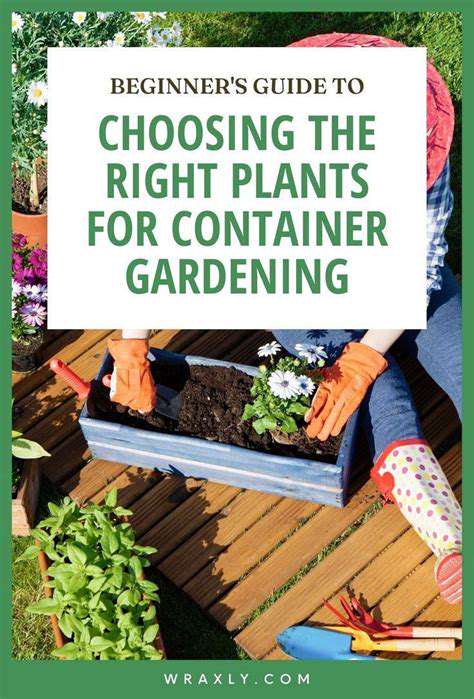
Selecting Appropriate Container Materials
Choosing the right container material is crucial for ensuring the safety and quality of your stored items. Different materials offer varying degrees of durability, resistance to moisture, and temperature fluctuations. For instance, metal containers are excellent at maintaining consistent temperatures, making them ideal for storing food or sensitive products. However, they can be heavy and may not be the best option for delicate items that might be easily scratched.
Plastic containers, on the other hand, are lightweight and often come in a wide variety of sizes and shapes, making them suitable for a broader range of storage needs. However, some plastics can leach chemicals into stored food, especially at high temperatures. Consider the specific chemicals used in the plastic and their potential impact on your stored goods.
Considering Container Size and Capacity
Understanding the capacity of your containers is essential to avoid overpacking or underutilizing space. Properly sized containers maximize storage efficiency and prevent items from getting crushed or damaged during transport or storage. Carefully measure the dimensions of your belongings to ensure a perfect fit, and consider future needs to avoid having to frequently rearrange storage.
Having containers of various sizes and shapes allows for versatile organization. Small containers are perfect for holding small items like screws, nuts, and bolts, while larger containers can house bulkier items like clothes or linens. This organization helps maintain a tidy and efficient workspace.
Ensuring Container Durability and Longevity
The durability of your containers plays a significant role in their long-term effectiveness. Choose containers made from robust materials that can withstand the rigors of everyday use, including potential impacts or exposure to harsh environmental conditions. This ensures the longevity of the container and prevents premature wear and tear.
Consider factors like the weight of the items you plan to store and the frequency with which you'll need to access them. Heavier items may require stronger containers to prevent damage, and containers with frequent use might require heavier-duty materials to resist wear over time. This consideration ensures the containers remain functional for years to come.
Importance of Container Security and Protection
Security is a paramount concern when selecting containers, especially for valuable or sensitive items. Choose containers with secure closures to prevent unauthorized access and protect your belongings from theft or damage. Look for containers with reinforced lids or latches that ensure a tight seal. This is crucial for preserving the quality of stored items, especially for food or medicine.
Consider the environment in which the containers will be stored. If they will be exposed to harsh weather conditions, select weather-resistant containers to protect your items from moisture, pests, or other environmental factors. This extra step is essential for safeguarding your belongings and ensuring their long-term usability.
Designing Your Container Garden Layout
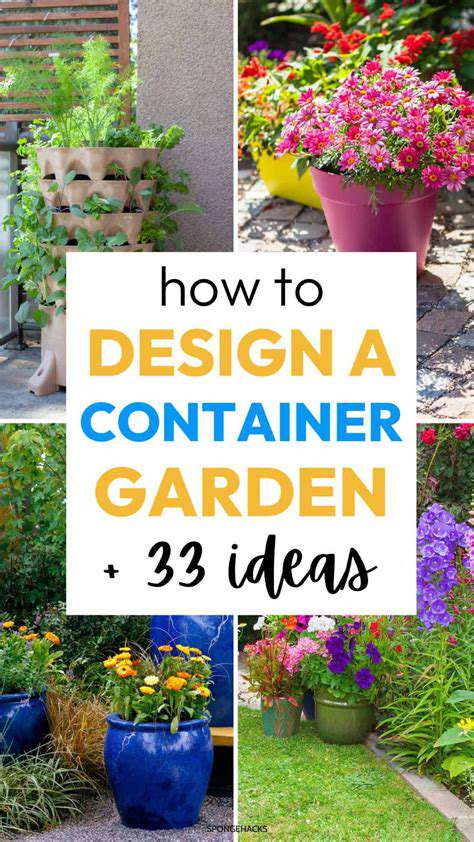
Choosing the Right Container
Selecting the right container is crucial for a successful container garden. Consider the size of the plants you intend to grow, as well as the overall aesthetic you're aiming for. A large, decorative pot might be ideal for a statement piece, while a series of smaller, more manageable containers could be perfect for a vibrant balcony garden. Think about the space you have available and choose containers that fit comfortably and complement the surrounding environment. Furthermore, consider the material of the container. Terracotta pots can add a charming rustic touch, but they may dry out faster than plastic or ceramic options. Plastic containers are often more affordable and easier to clean.
Drainage is paramount. Poor drainage can lead to root rot, a common problem in container gardens. Ensure your chosen containers have adequate drainage holes to prevent waterlogging. Adding a layer of gravel or small stones at the bottom of the container can further improve drainage and prevent the soil from compacting. This simple step can make a significant difference in the overall health and vigor of your plants.
Selecting the Right Soil
High-quality potting mix is essential for healthy plant growth in containers. Commercial potting mixes are often formulated specifically for container gardening, offering excellent aeration and drainage. These mixes typically contain a blend of peat moss, perlite, vermiculite, and other organic components. Avoid using garden soil directly from your yard, as it can compact easily in containers and may harbor unwanted pests or diseases.
A well-draining soil mix is critical for preventing root rot. Overwatering is a common culprit in container gardens, so a fast-draining mix will help prevent waterlogged roots. Adding amendments like compost or worm castings can enhance the soil's structure, improving drainage and nutrient retention. This will provide your plants with the best possible growing environment.
Choosing the Right Plants
When selecting plants for your container garden, consider their mature size and growth habit. Choose plants that are well-suited for the amount of sunlight your container garden receives. Consider the overall aesthetic appeal of the plants and ensure they complement each other in terms of color, size, and texture. Understanding the needs of each plant species will help you create a thriving and visually appealing container garden.
Thoroughly research the specific needs of your chosen plants. Different plants require varying amounts of water, sunlight, and nutrients. Knowing these requirements will help you provide the best possible care for your container garden and ensure that your plants flourish. Pay close attention to factors like the plant's preferred soil pH and the expected mature height to avoid any surprises down the line.
Maintaining Your Container Garden
Consistent watering is key to keeping your container garden thriving. Monitor the soil moisture regularly and water deeply when the top inch or two feels dry. Overwatering can be just as detrimental as underwatering, so it's important to find a balance. A simple moisture meter can be a helpful tool in this process, ensuring you're providing the right amount of water without overdoing it.
Fertilizing your container garden regularly can keep your plants healthy and promote robust growth. Use a balanced liquid fertilizer diluted according to the package instructions, applying it every few weeks during the growing season. Proper fertilization will provide your plants with the essential nutrients they need to thrive in their container environment. Consistent fertilization, along with proper watering, ensures a lush and vibrant container garden throughout the growing season.
